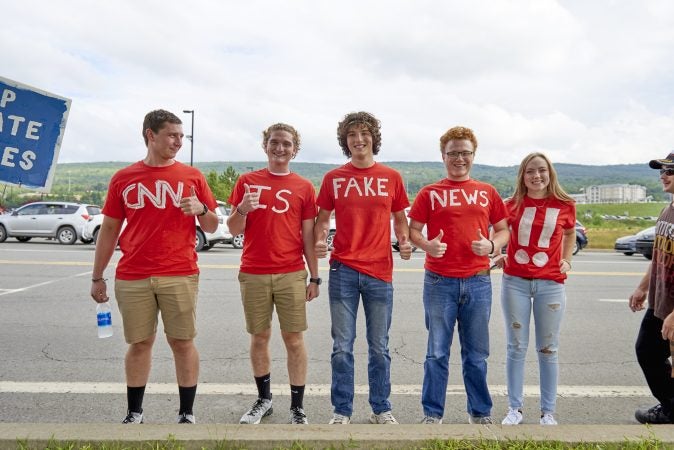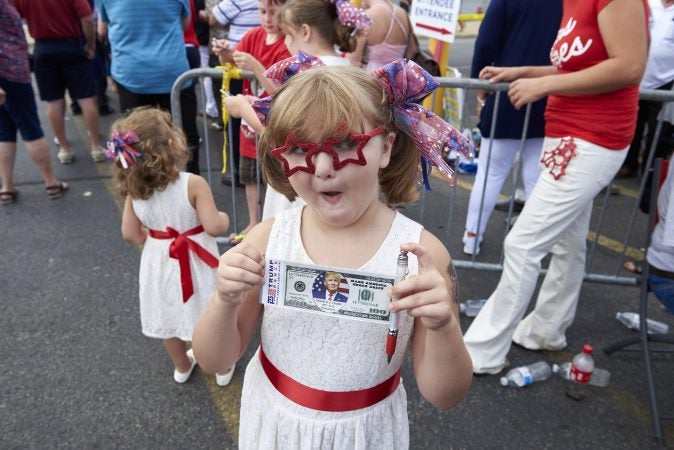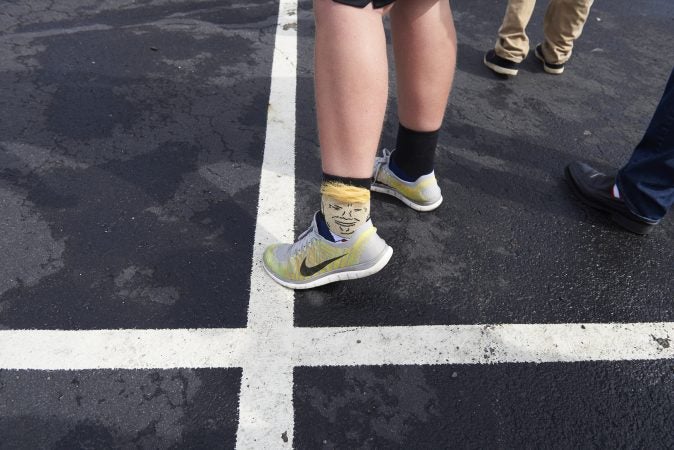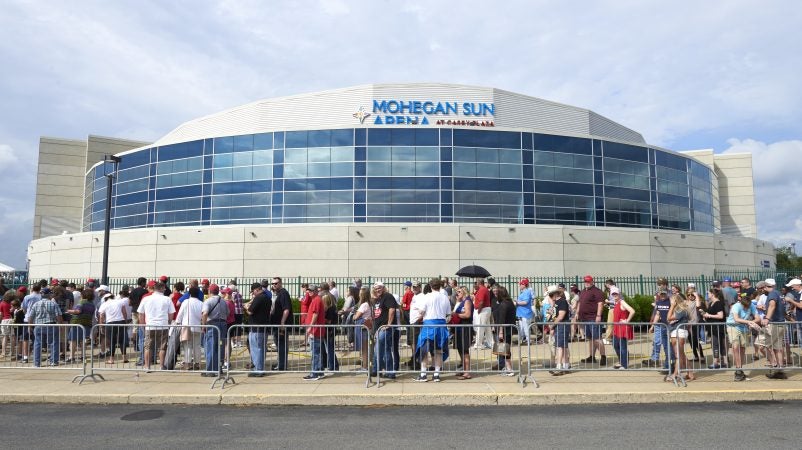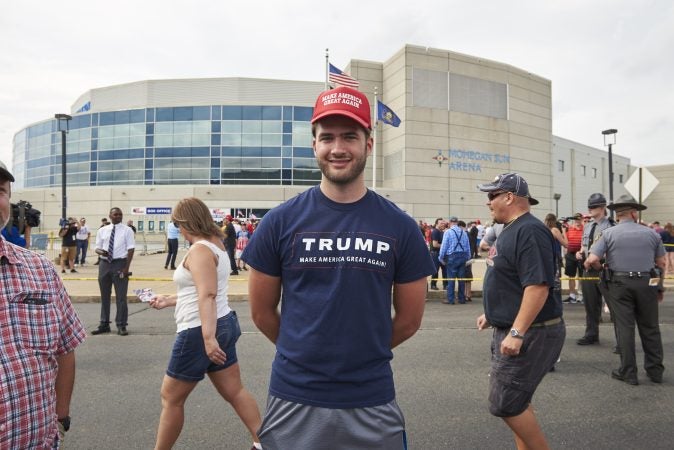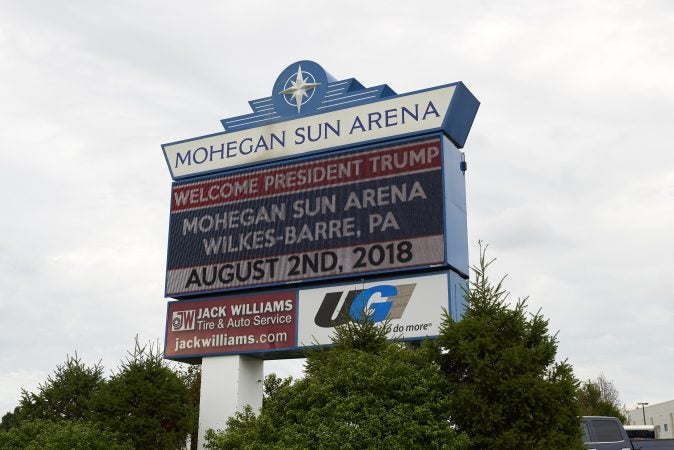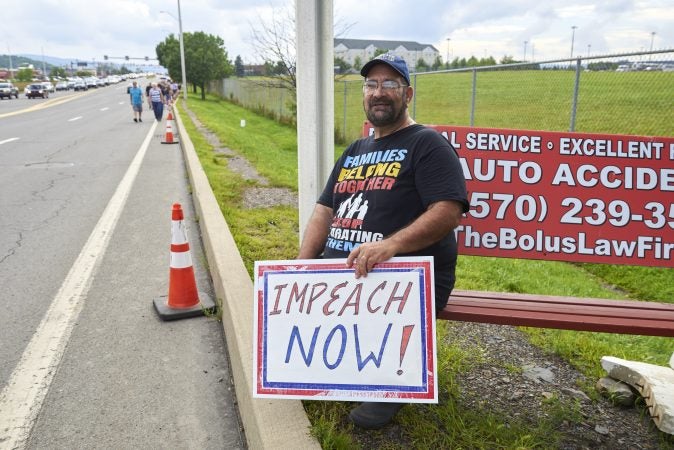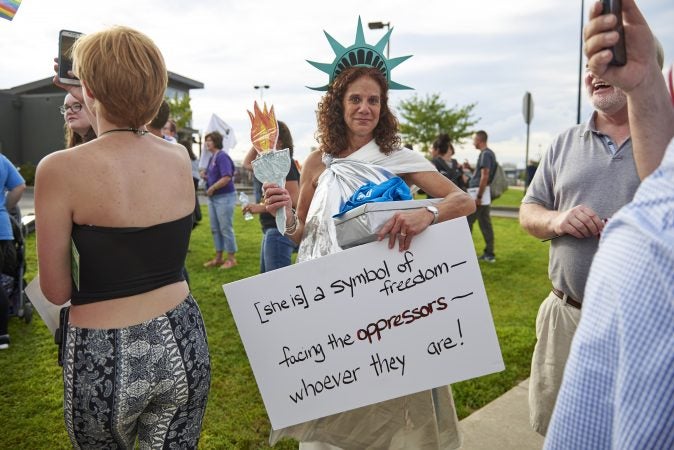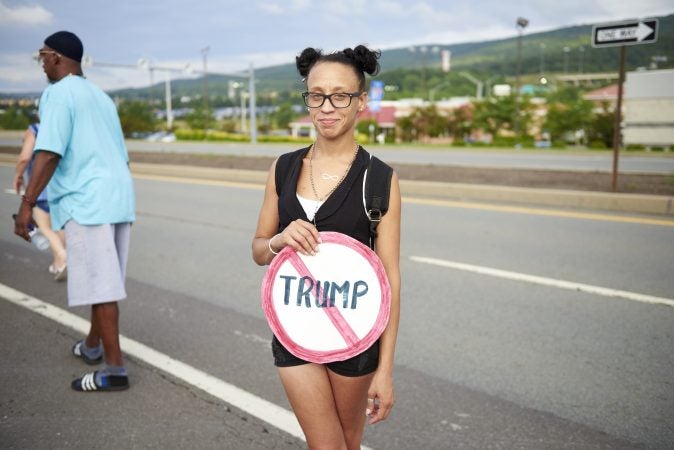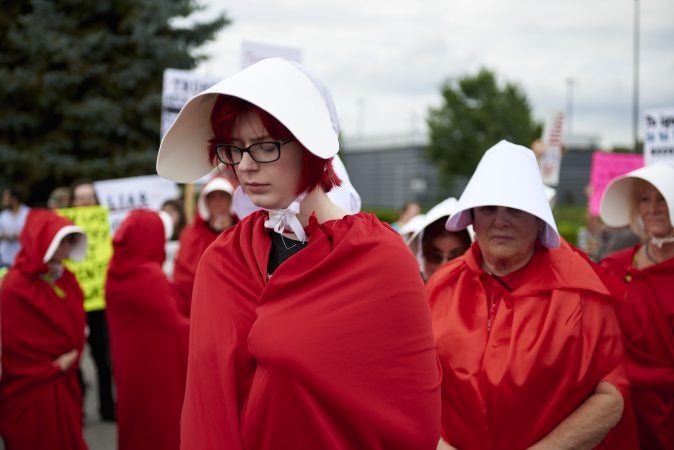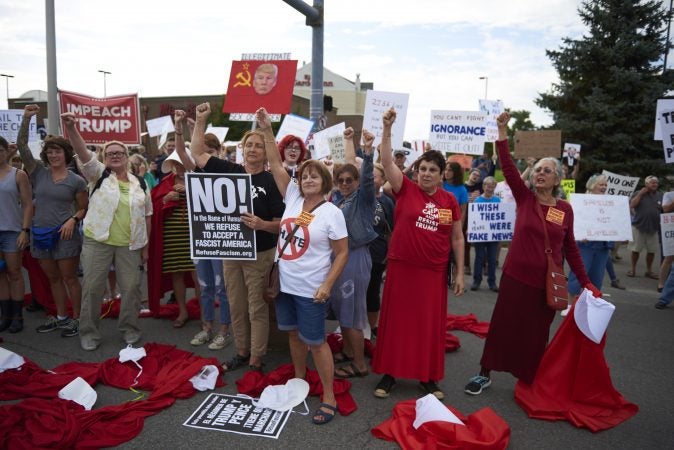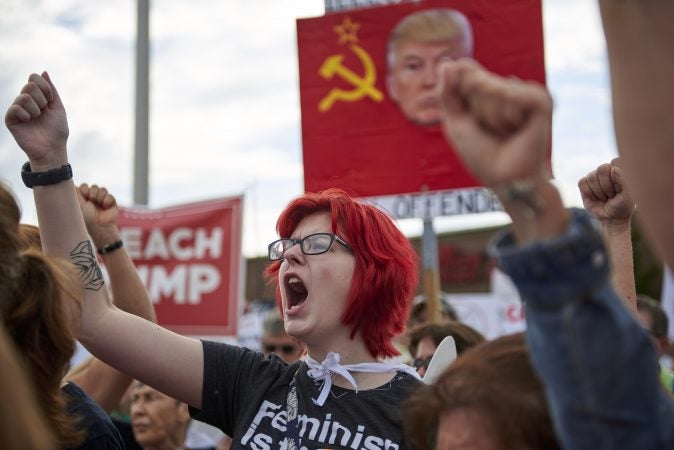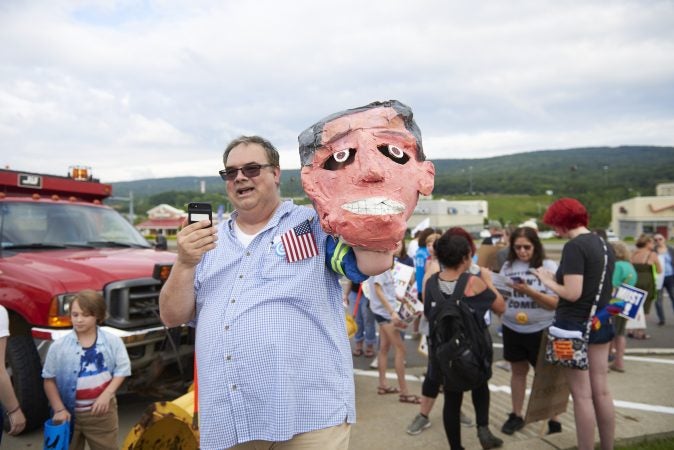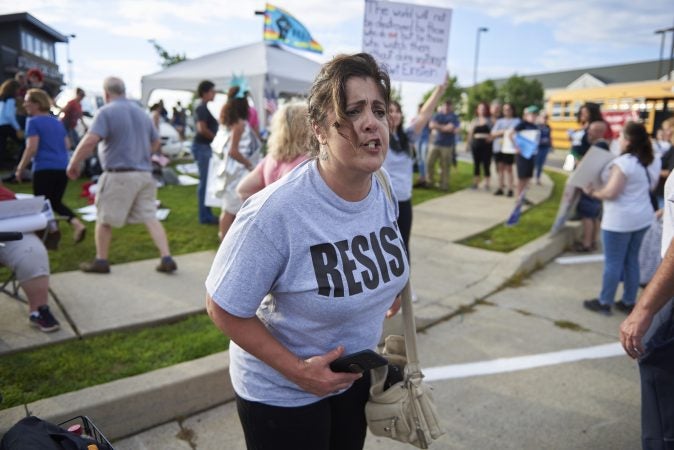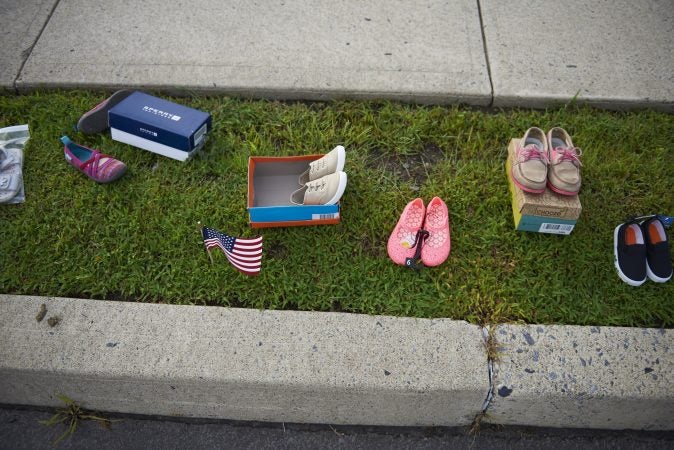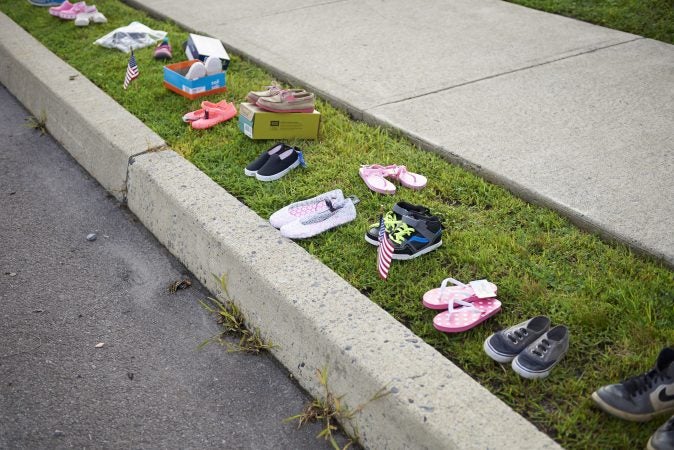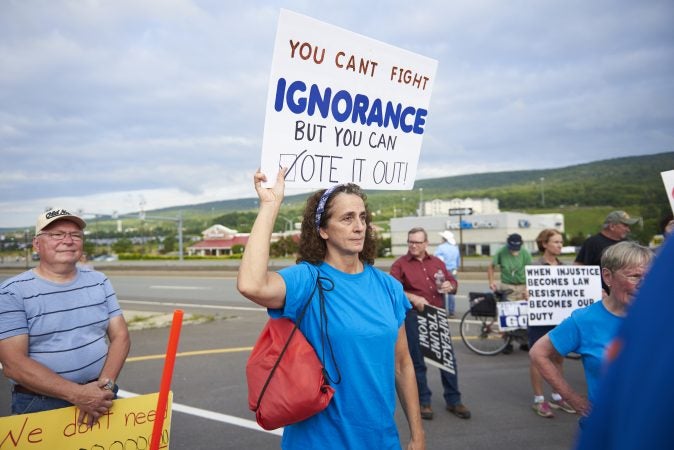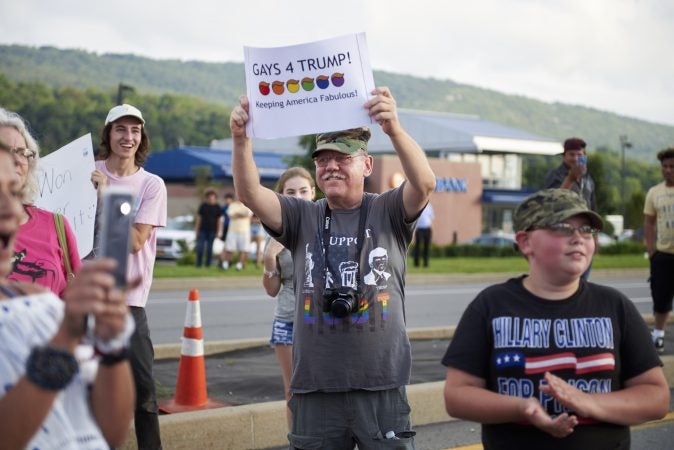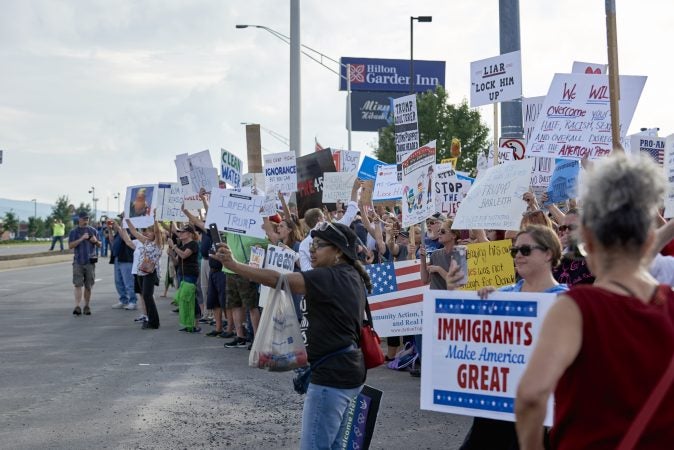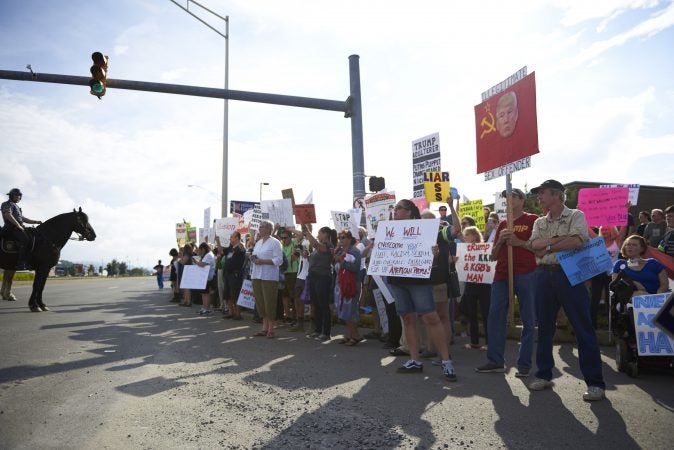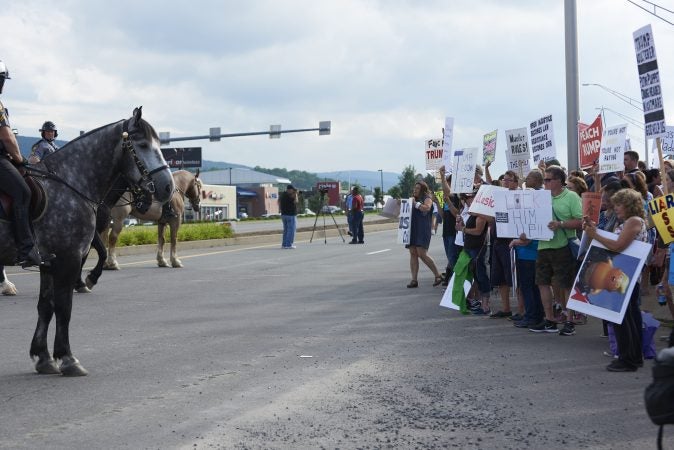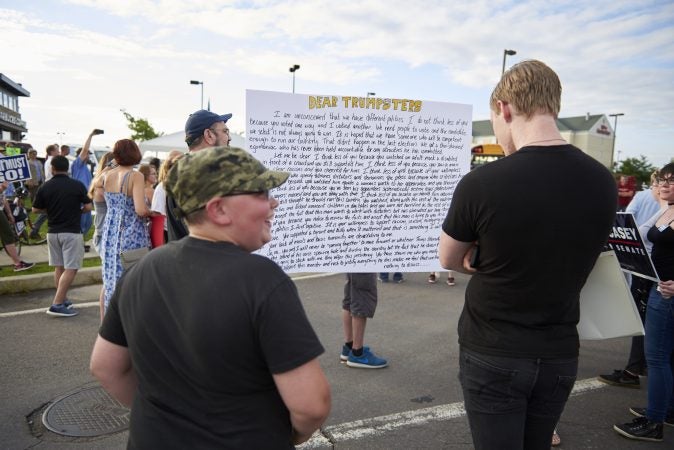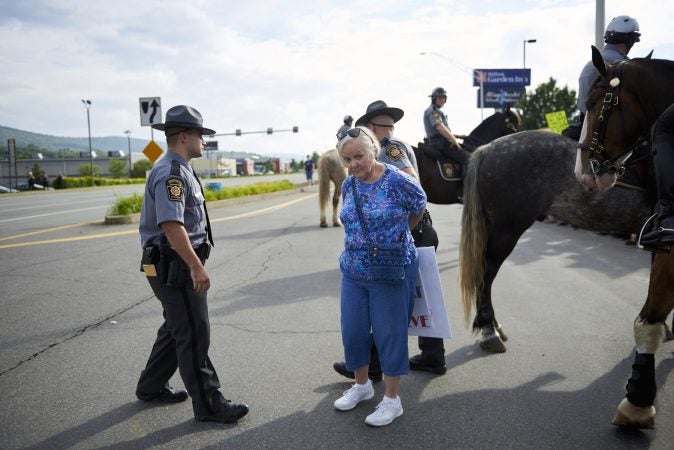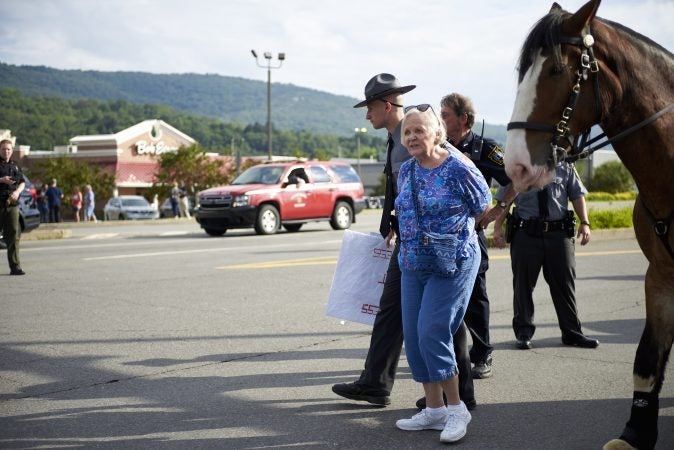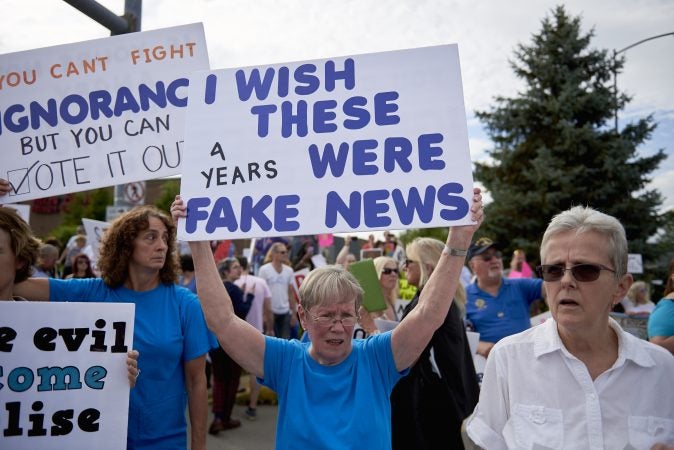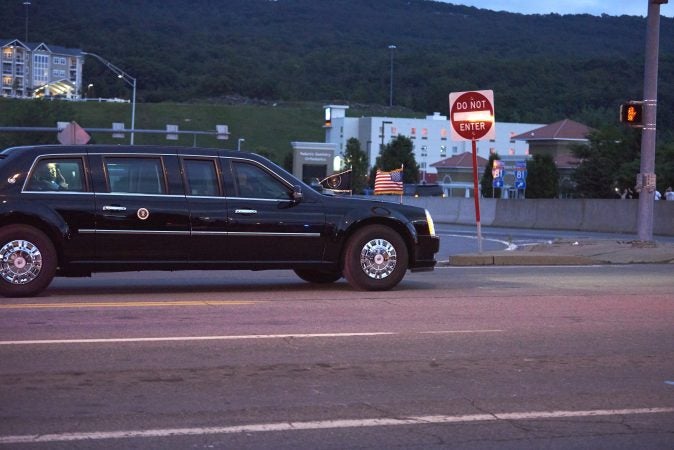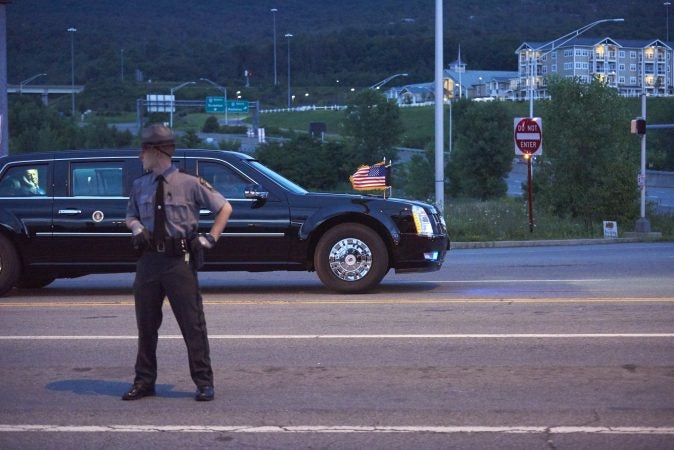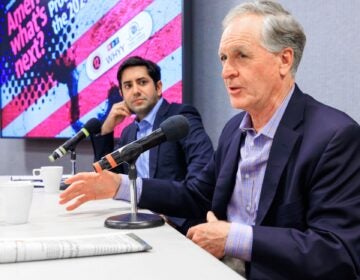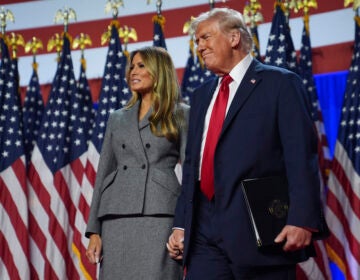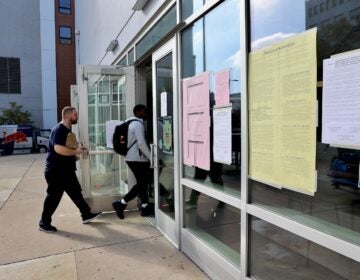Trump endorses Barletta, but keeps spotlight on himself and media
Outside the rally, hundreds of anti-Trump protesters held signs and chanted.
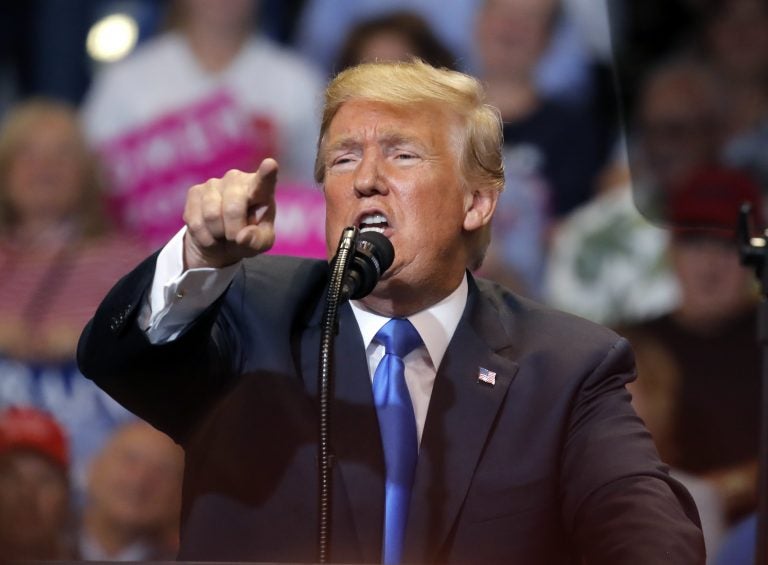
President Donald Trump speaks during a rally, Thursday, Aug. 2, 2018, at Mohegan Sun Arena at Casey Plaza in Wilkes Barre, Pa. (AP Photo/Carolyn Kaster)
President Donald Trump rallied supporters in Wilkes-Barre Thursday evening to push for the U.S. Senate candidacy of Lou Barletta, who is challenging two-term Pennsylvania U.S. Sen. Bob Casey.
Barletta, a congressman and former mayor of Hazleton, is flagging in the polls, and he has far less campaign cash that Casey. However, Barletta is banking on the Trump endorsement to give him voter momentum in this swath of Northeastern Pennsylvania considered the core of Trump country.
Luzerne County, home to Wilkes-Barre, is blue-collar and mostly white. It went for Obama twice, but then Trump carried the county. Nearly 6,000 Democrats switched parties to vote for Trump in the 2016 Republican primary. Turnout in this swing county will be key in November’s midterm election.
Trump’s surprise victory among the electorate here, the president said, should give Casey something to worry about. Barletta, Trump said, would buck the establishment and advance a strict crackdown on illegal immigration, as Trump has done nationally and as Barletta sought to do as mayor of Hazleton.
“He’s smart. He’s strong. He loves this state,” Trump said of Barletta. “People are just starting to know him. But I’ve known him for a long time. And you know, when he wants something for Pennsylvania, he is brutal.”
Although Barletta’s candidacy was an undercard to Trump’s main event — savaging his opponents — the president did bless the congressman’s bid. Trump, who has accelerated his campaign schedule in recent weeks to help the Republicans he favors in primaries and November’s midterms, was the first Republican to win Pennsylvania since 1988.
“For years and years, they said Republicans should win the state of Pennsylvania,” Trump said. “It always got away. But we won the state of Pennsylvania.”
He and Barletta share hard-line immigration views, and Trump lashed Casey with his own derogatory nickname: “Sleeping Bob.”
But Trump spent most of the campaign stop promoting his own achievements and blasting the news media for what he sees as the overly critical coverage of his presidency.
He called journalists “horrible, horrendous people,” pointing at the press staging area at the back of the Mohegan Sun Arena at Casey Plaza. In turn, Trump’s sea of fans booed the journalists at the event, giving them the middle finger or a thumbs down.
Trump said the “fake, fake disgusting media” has distorted his policies and accomplishments.
Outside the rally, dozens of anti-Trump protesters chanted, “We want a leader, not a creepy tweeter,” telling reporters that plenty of Luzerne County residents oppose Trump and are not persuaded that he and Barletta will “put our miners back” to work as he told the onetime coal mining community.
But Trump could not resist tearing into the media, a theme that punctuated the entire evening.
He was angry over what he saw as the press corps diminishing his Singapore summit with North Korea leader Kim Jong Un. He complained about the tough questioning he received in Helsinki when he met with Russian President Vladimir Putin last month. And he began his rally speech with a 10-minute recap of his 2016 election night victory, bemoaning that Pennsylvania wasn’t the state to clinch the White House for him only because “the fake news refused to call it.”
“They were suffering that night, they were suffering,” Trump said of the election-night pundits. He then promised that the Keystone State would deliver his margin of victory “next time.”
“Only negative stories from the fakers back there,” the president declared.
With each denunciation, the crowd jeered and screamed at reporters in the holding pen.
The inflammatory performance came just hours after White House press secretary Sarah Huckabee Sanders refused to distance herself from Trump’s previous assertions that the media is the “enemy” of the American people. Pressed during a White House briefing on the issue, Sanders said Trump “has made his position known.”
In a heated exchange with reporters, she recited a litany of complaints against the press and blamed the media for inflaming tensions in the country.
“As far as I know, I’m the first press secretary in the history of the United States that’s required Secret Service protection,” she said, accusing the media of continuing “to ratchet up the verbal assault against the president and everyone in this administration.”
Trump’s focus was on defending his own accomplishments and beliefs. He pushed for tougher borders, overstating the threat posed by violent gangs like MS-13 and making the group a stand-in for all immigrants in the United States illegally.
He defended his approach to both Kim and Putin, saying, “it would be a good thing, not a bad thing” to have warmer relations with the hostile powers and dismissing talk that summits with the autocrats elevated them on the world stage.
He bashed the Democratic leadership of Senate Minority Leader Charles Schumer and House Minority Leader Nancy Pelosi and suggested that his frequent foe Rep. Maxine Waters of California was “a new star” of the party.
He raved about the booming economy and said that his blue-collar supporters in states like Pennsylvania were the biggest beneficiaries.
And he looked ahead to his 2020 re-election campaign, touting his new slogan, “Keep America Great Again” while musing whether he wanted Massachusetts U.S. Sen. Elizabeth Warren, whom he decried as “Pocahontas,” or Vermont U.S. Sen. Bernie Sanders, whom he flatly deemed “crazy,” as his opponent.
The rally came at a perilous time for Trump, who, the day before, had bluntly declared via tweet that his attorney general should terminate the federal probe into the campaign that took him to the White House. It was a newly fervent attack on the special counsel investigation that could imperil his presidency.
Sanders scrambled to explain that Trump’s tweet was “not an order” and that the president was not directing his attorney general to do anything. “It’s the president’s opinion,” she said.
But it again raised the specter that Trump could try to more directly bring special counsel Robert Mueller’s Russia-Trump election-collusion probe to a premature end. And it revived the idea that the president’s tweets themselves might be used as evidence that he is attempting to obstruct justice.
Negotiations have also started again about a possible presidential interview as Mueller’s team has offered the White House format changes, perhaps willing to limit some questions asked of Trump or accept some answers in writing, according to a person briefed on the proposal who wasn’t authorized to discuss private talks and spoke on condition of anonymity.
WHYY is your source for fact-based, in-depth journalism and information. As a nonprofit organization, we rely on financial support from readers like you. Please give today.


